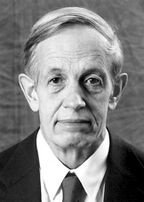
John Nash (June 13, 1928 – May 23, 2015) was a mathematical genius who made fundamental contributions to game theory, differential geometry, and the study of partial differential equations, and the only person to be awarded both the Nobel Memorial Prize in Economic Sciences and the Abel Prize. He displayed a passion for mathematics from an early age and proved the classic Fermat theorem about an integer multiplied by itself p times where p is a prime in high school. At the same time he also did electrical and chemistry experiments. He entered Carnegie Tech in Pittsburgh (now called Carnegie Mellon U.) on a full scholarship and eventually finished his studies in mathematics with a M. S. in addition to his B. S. when he graduated because of how good he was. While still at Carnegie (before enrolling at Princeton) he also took an elective course in "International Economics" and then wrote the paper "The Bargaining Problem" which was later published in Econometrica. As a graduate student at Princeton he then developed an interest in game theory studies, developed the idea which led to "Non-Cooperative Games", and also worked on manifolds and real algebraic varieties. He later worked at the mathematics faculty at M.I.T. from 1951 until 1959 (when he resigned) and in the same period managed to prove the isometric embeddability of abstract Riemannian manifolds in flat (or "Euclidean") spaces. He also worked on a problem involving partial differential equations (Hilbert's nineteenth problem, a theorem involving elliptic partial differential equations), but Ennio de Giorgi had been working on it too (without Nash's knowledge) and was the first to solve it. Around 1959 he started to develop symptoms of what was diagnosed as schizophrenia and what started a sad chapter of his life, just at the time when his wife Alicia found out to be pregnant. He was also hospitalized several times against his will. In the periods when he felt better he was still able to successfully work on his research. Nash is the subject of the well-received movie A Beautiful Mind. While in the past he was usually thought to have only suffered from schizophrenia, it is now believed that he also had Asperger's Syndrome. Prof. Michael Fitzgerald wrote a paper called Did the Nobel Prize Winner John Nash have Asperger’s Syndrome and Schizophrenia? and came indeed to the conclusion that Nash met the criteria for Asperger's Syndrome. Read more about this exceptional man in his own words or on his Wikipedia page.